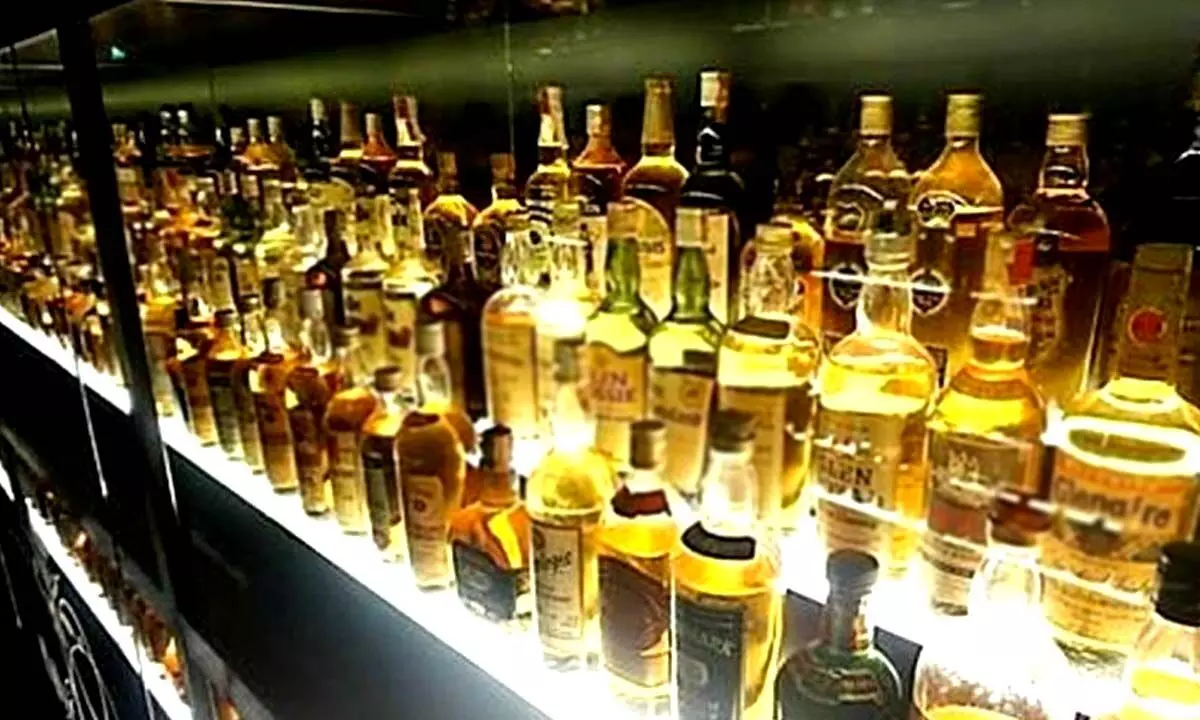India-UK trade deal may see tough negotiation on whisky
India’s talks on a possible Free Trade Agreement (FTA), which began in January this year, could culminate into the signing of an agreement when Boris Johnson's visits India on April 2022.
image for illustrative purpose

India's talks on a possible Free Trade Agreement (FTA), which began in January this year, could culminate into the signing of an agreement when Boris Johnson's visits India on April 2022. The roadmap, which aims to at least double bilateral trade between India and the UK by 2030, is part of Britain's so-called Indo-Pacific foreign policy tilt.
"A trade deal with India's booming economy offers huge benefits for British businesses, workers and consumers," Prime Minister Johnson said at the formal launch of FTA talks earlier this year.
"The UK has world-class businesses and expertise we can rightly be proud of, from Scotch whisky distillers to financial services and cutting-edge renewable technology."
While India has agreed to slash the import duty on high-end Australian wines, a similar tariff cut for Scotch whisky may not be easy to negotiate for the Brits. The domestic alcoholic beverage industry is demanding that the UK remove a key requirement for whiskies and spirits to enter the UK market: three-year maturation.
A two-year maturation in India is equivalent to 6-10 years of maturation. There is a 10 per cent loss of spirit every year in India, compared to a 1.5-2 per cent rate of evaporation in Scotland or Tasmania (Australia). This means that Indian alcoholic beverages would lose close to 30 per cent spirit under the 3-year maturation requirement, compared to just 4-6 per cent in Scotland. "That pushes up the cost significantly and doesn't yield many benefits. India reaches the same level of maturity as Scotland in just 3-6 months. A 30 per cent spirit loss means Indian products can become uncompetitive.
The majority of the Scotch whisky imported into India comes in bulk and not bottles. And a significant part of it goes into making Indian made foreign liquor (IMFL). Therefore if the tariff is reduced from 150 per cent to a lower number Indian whisky companies will have lower costs of ingredients and it could mean a lower cost for Indian consumers.
The UK is India's seventh-largest export market. The UK has long sought a tariff reduction on its premium spirits including Scotch, which currently stands at a stiff 150 per cent. "We are open to discussing duty reduction in whiskies priced over a certain threshold. However, they also need to reciprocate as far as access to Indian alcoholic beverages are concerned.
The potential for a transformative change is most evident in our economic relationship. India and the UK are the 5th and 6th largest economies in the world that enjoy huge complementarities and offer tremendous opportunities for growth on both sides.
Defence and security is another key element of the India-UK renewed partnership. The focus should be on research and innovation and joint industrial cooperation to develop advanced defence capabilities and strengthen collaboration in tackling new threats in the cyber, space, counter-terrorism and maritime domains.

